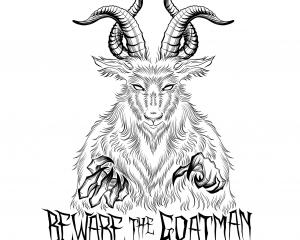There a right old stoush going on over the name UB40.
One UB40, including original frontman Ali Campbell, is performing at Gibbston tomorrow night as part of a nationwide Red Red Wine Vineyard tour.
Meanwhile, another UB40 is playing at the Raggamuffin festival in New Zealand next month.
Although this second UB40 includes five original members in the line-up and carried on through since the band was formed in 1978, it excludes Campbell and two other founding members, Astro and Mickey Virtue. Campbell has said calling that band UB40 is tantamount to Queen without Freddie Mercury.
While a promoter in the 1970s, I was aware at one time there were two or three bands touring all with the same names, such as Deep Purple, The Drifters and The Platters et al.
The most cost-effective way of controlling the brand/bands name is by securing a trademark. Consider market leaders such as Taylor Swift, who has 61 trademarks in the United States (several with her initials TS, several of her signature, the others for her name), with five trademarks in New Zealand. Both The Rolling Stones and The Beatles are well trademarked in New Zealand.
Campbell's brother Robin, who did not leave the original UB40, has called the marketing for the Vineyard Tour a deliberate ploy to mislead fans.
Ali Campbell owns the UB40 registered trademarks in the United Kingdom. UB40 founder Brian Travers claims to have spent NZ$700,000 challenging Ali Campbell's use of the brand. Rather a loss-leader, given most trademark Acts have a provision for ‘‘honest concurrent use''.
In New Zealand this is generally taken to mean four years of trading using the mark in question, although the Act does not specifically cite just how much time is required to invoke Honest Concurrent Use.
In the case of UB40, any court would likely hold to the view each party had the right to earn a living and both parties had traded for well over eight years with the same name, much more than the required four. They would therefore be mutually entitled to use the same brand/name of UB40. The golden rule for trademark owners is always to take effective Cease and Desist action against any infringement or unauthorised use as soon as they are aware of such use and before the other party can mitigate through honest concurrent use.
Securing trademark protection is not simply for headline acts which don't simply rely on their global renown for protection; whether you are a dress designer, restaurateur, or sole trader, you should consider protecting your brand name by virtue of trademarking.
If another party uses your brand name elsewhere in the country then your brand could be exposed to tarnishing or dilution. Consider a restaurant failing a hygiene inspection and/or having bad online reviews which could result in other restaurants of the same name becoming victim to undeserved negative consequences.
A common misunderstanding is the widely held belief that incorporation of a business name will provide a satisfactory level of brand protection. Not so. Even the Companies Office advises securing a trademark to protect your trading name as the owner of the trademark is afforded a statutory monopoly for the mark's exclusive usage in the classes it is registered in.
Start-ups can take more than two years of trading before any meaningful goodwill is generated to a point of being a consideration in, say, a common law tort of passing off, or Fair Trading Act action. There would remain the problem of having a demonstrable Statement of Loss, ascribed to the other parties trading, in, say, another part of the country. Whereas a registered trademark will support your claim in such action. By securing registration first you can also prevent expensive legal costs should another party register your trademark before you do.
Conventions and/or copyright laws do not protect a brand name by itself, as copyright protection is afforded work(s) as a whole, rather than a title of a book or film etc. It is for this reason producers trademark titles such as Hobbit, James Bond, Star Wars, and the like.
A most important trademark value proposition is that the major online platforms - Facebook, Twitter and Trade Me - all now have boxes for members to tick and attach their electronic trademark certificates if they consider there is an infringement on the site.
For several of my clients, including Allied Press/ODT, New Zealand Trade Centre, Clarity Diamonds to Electric Body of Las Vegas, we have used this avenue to achieve instant takedowns of allegedly infringing material. Without a registered trademark an expensive legal remedy would most likely be required to achieve a takedown over a much longer period.
Once a mark is registered the ownership becomes unequivocal to the point where most online platform owners will now act in favour of a trademark owner. A couple of years back, copycat-China posed a major problem for exporters. However, since it ascended to WIPO Madrid Protocol membership, it is trying hard to be more globally IP compliant.
Most of my 500 plus food-sector clients are now fully aware that unless you have a valid trademark, you are not likely to get your container off a Chinese wharf. New Zealand's recent membership of Madrid Protocol means we can file in more than 95 other countries from Dunedin and our membership of the TPP will eventually provide enhanced cross-border protection for our trademarks more broadly internationally.
In the first instance however, you must secure trademark registration here, as your country of origin, in order to benefit from these latest advances.
Murray Stott is a trademark agent and sponsorship broker.











